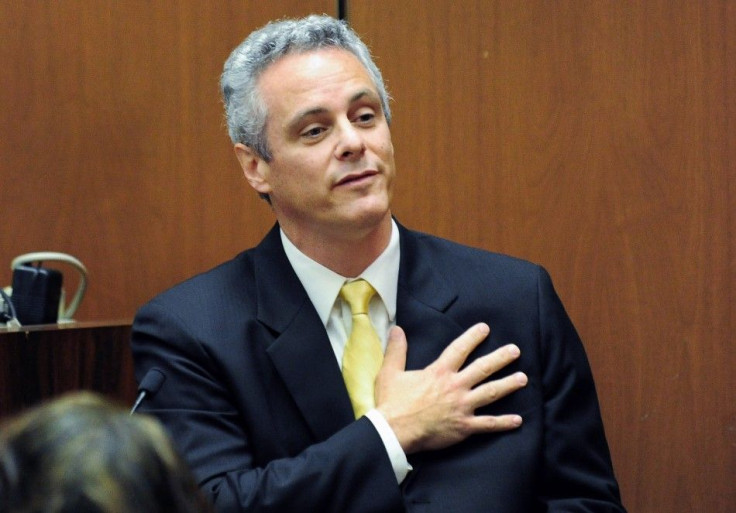Michael Jackson's Doctor Conrad Murray Trial Day 11: Unethical Murray Committed Six Gross Negligence

Two medical experts took the stand on Wednesday Oct. 12, testifying with one accord that Dr. Conrad Murray unethically treated Michael Jackson, which led up to his death.
Dr. Alon Steinberg, an expert reviewer for the California Medical Board, who reviewed Murray's treatment of Michael Jackson, elaborated six gross negligence the doctor committed.
According to Steinberg, Murray's negligence were listed as follows:
1. Administering propofol in someone's home without the proper equipment.
2. Administering propofol without the proper backup personnel in attendance.
3. Administering propofol with inadequate preparation in case of emergency.
4. Improper care during Jackson's respiratory arrest.
5. Failure to call 911 in a timely manner.
6. Failure to maintain proper medical records.
If these deviations hadn't happened, Mr. Jackson would have been alive, Steinberg said.
Steinberg also stated, even if the star administered propofol to himself as the defense insisted, Murray still would be responsible for his death.
It's like leaving a baby that's sleeping on your kitchen countertop, Steinberg said. You look at it and it's probably going to be OK and you're just going to go grab some diapers or go to the bathroom but you would never do it.
I've never heard of anyone using propofol for sleep except Dr. Murray, Steinberg testified. However, defense attorney J. Michael Flanagan claimed propofol could effectively be used to treat insomnia, citing a study.
Steinberg said the study was published in 2010, almost one year after pop icon died. Furthermore, the study is still experimental, the doctors can't treat people according to unconfirmed theory.
According to TMZ, the defense team found that orally ingesting propofol would not be lethal after an independent study. On Tuesday, deputy medical examiner Christopher Rogers took the stand, testifying that there was no propofol found in Jackson's esophagus or stomach. But the defense insisted that the King of Pop took the lethal dose by himself, which led to his sudden death.
Dr. Nader Kamangar, a physician specializing in pulmonary critical care and sleep medicine, also agreed Murray made several extreme mistakes. According to Kamangar, giving Jackson the powerful anesthetic propofol as sleep aid without proper monitoring equipment was inconceivable.
In this case it was clear there was a period of time when Mr. Jackson was basically left alone and was not being monitored. That in somebody that is receiving sedation is really not acceptable, Dr. Kamangar said.
The trial is scheduled to last about four weeks. If convicted, Murray could serve a sentence of up to four years in prison and also lose his medical license.
© Copyright IBTimes 2025. All rights reserved.





















